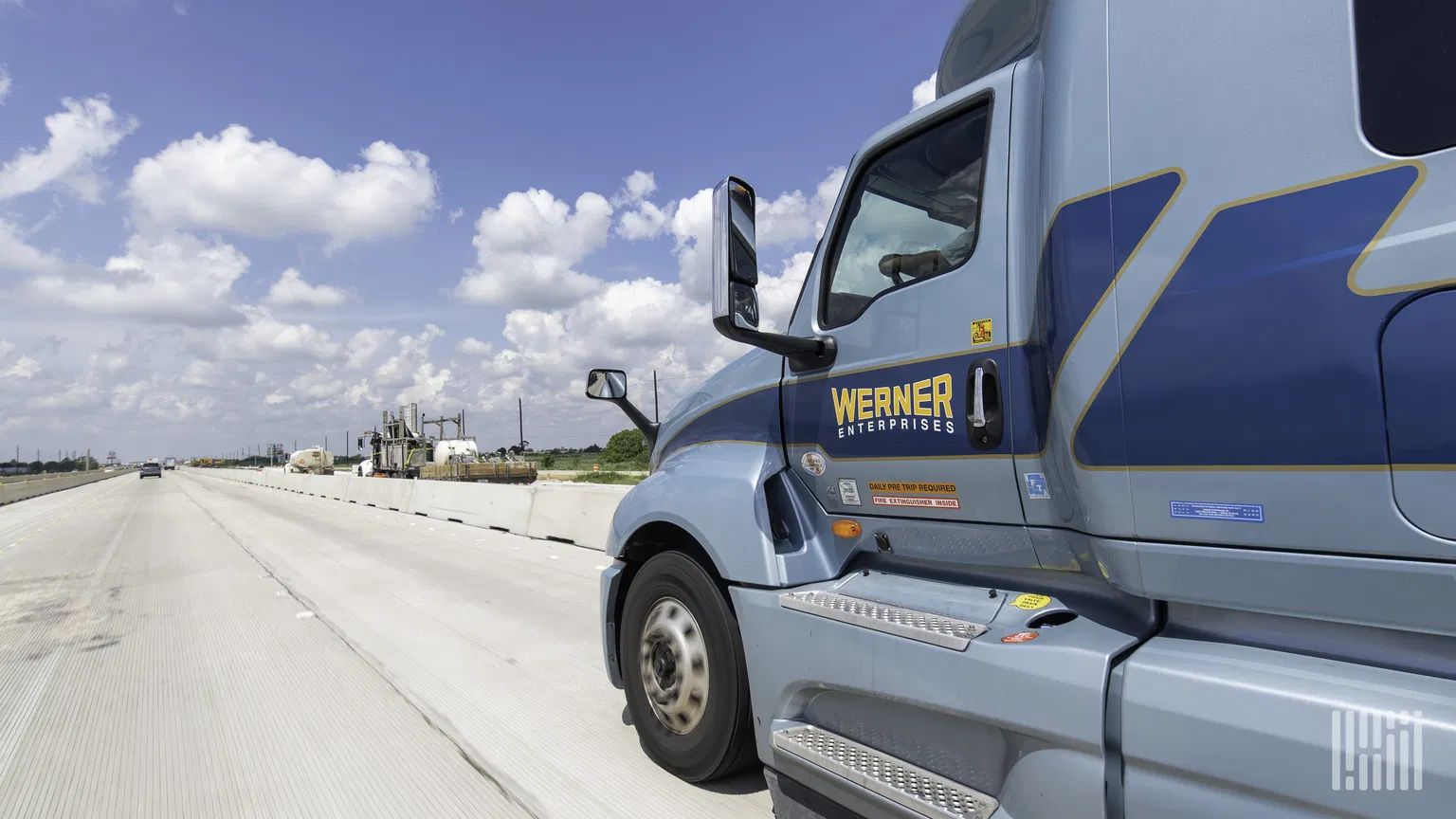Uitspraak van het Achtste Circuit Hof in Invaliditeitszaak
Het Eighth Circuit Court of Appeals heeft onlangs een cruciaal vonnis bekrachtigd met betrekking tot een rechtszaak over discriminatie op grond van handicap waarbij Werner Enterprises en een dove chauffeur, Victor Robinson, betrokken waren. Deze beslissing heeft aanzienlijke gevolgen voor de logistieke sector, met name voor wat betreft de praktijken voor het aannemen van personeel.
Kernpunten uit de zaak
- Werner Enterprises werd geconfronteerd met een rechtszaak aangespannen door de Equal Employment Opportunity Commission (EEOC) betreffende hun weigering om Robinson aan te nemen, ondanks zijn kwalificaties en voltooiing van hun trainingsprogramma.
- De oorspronkelijke schadevergoeding van €36 miljoen werd drastisch verlaagd tot ongeveer €72.000, waarbij rekening werd gehouden met een maximum aan punitieve schadevergoeding van €300.000, achterstallig loon en andere bijbehorende kosten.
- Het hof verwierp Werner's beroep betreffende causaliteit en de toelaatbaarheid van bewijs, waardoor de oorspronkelijke positie van de rechtbank werd bekrachtigd.
Overzicht van de rechtszaak
De zaak dient als een schrijnende herinnering aan het belang van eerlijke aanwervingspraktijken in alle sectoren, inclusief logistiek en transport. Robinson had de nodige training voltooid en beschikte over een medische afwijking van de Federal Motor Carrier Safety Administration (FMCSA), waardoor een dove persoon een Commercial Driver’s License (CDL) kon verkrijgen.
Na het succesvol afronden van de Roadmaster rijschool die verbonden is aan Werner, verwachtte Robinson een baan aangeboden te krijgen. Echter, hij werd door Jamie Hamm, de Vice President of Safety and Compliance, geïnformeerd dat hij niet aangenomen kon worden vanwege zijn doofheid, ondanks de aanvankelijke aanmoediging van een recruiter.
Financiële implicaties en inzichten van de jury
De financiële gevolgen voor Werner Enterprises zijn opmerkelijk, aangezien ze overgingen van een torenhoge schadevergoeding naar een aanzienlijk lager bedrag na het hoger beroep. Het uiteindelijke vonnis omvatte een punitieve schadevergoeding die aan Robinson verschuldigd was en benadrukte het belang van redelijke aanpassingen voor werknemers met een handicap.
Belangrijk is dat de jury oordeelde dat Robinson inderdaad gekwalificeerd was voor de functie en de essentiële taken veilig kon uitvoeren met de juiste aanpassingen. De rechtbank herhaalde dat aanstellingsbeslissingen niet uitsluitend gebaseerd mogen zijn op vermeende zakelijke moeilijkheden, maar eerder geleid moeten worden door naleving van de wetgeving inzake handicaps.
De verdedigingsstrategie van Werner
Gedurende het gehele beroepsproces heeft Werner Enterprises verschillende twistpunten aangekaart, die uiteindelijk allemaal door het hof van beroep werden verworpen. Tot hun argumenten behoorden bezorgdheid over de vraag of de doofheid van Robinson de werkelijke oorzaak was van zijn niet-aanstelling en bezwaren tegen het introduceren van details uit het rijbewijs van Robinson, waaronder eerdere ongevallen.
Ze stelden ook vragen over de implicaties van de FMCSA-vrijstelling met betrekking tot de aanneembaarheid van Robinson. Desondanks bleef de rechtbank standvastig tegen al deze verdedigingen en benadrukte dat de kwalificaties van Robinson en zijn medische afwijking voldoende hadden moeten zijn voor het overwegen van een dienstverband.
Geleerde lessen voor de logistiek en transportsector
Deze zaak is een wake-up call voor de logistieke sector, die vaak worstelt met een tekort aan talent. Door ervoor te zorgen dat de aanwervingspraktijken voldoen aan de voorschriften voor mensen met een beperking, kunnen bedrijven toegang krijgen tot een bredere talentenpool, waardoor hun operationele mogelijkheden worden verbeterd. Beschouw het op deze manier: door inclusief te zijn, kunnen bedrijven meer waar voor hun geld krijgen als het gaat om personeelsbezetting en logistieke efficiëntie.
Vooruitzichten voor toekomstige aanwervingspraktijken
Naarmate de logistieke sector zich blijft ontwikkelen, is het essentieel dat bedrijven als Werner Enterprises hun aanwervingsbeleid heroverwegen om beter tegemoet te komen aan diverse kandidaten. Als dit geval iets heeft geleerd, dan is het dat innovatie - inclusief aanwervingspraktijken - moet aansluiten bij inclusieve waarden om een robuust personeelsbestand te bevorderen.
Naleving van de Americans with Disabilities Act (ADA) beschermt bedrijven niet alleen juridisch, maar draagt ook bij aan het bevorderen van een rechtvaardige bedrijfscultuur. Vooruitstrevende logistieke bedrijven kunnen enorm profiteren van het omarmen van diversiteit en het in dienst nemen van personen die unieke perspectieven en mogelijkheden kunnen bieden.
Conclusie
Zoals aangetoond in de lopende zaak met Werner Enterprises, is het cruciaal om de wetgeving inzake handicaps na te leven. De uitspraak heeft niet alleen invloed op het bedrijfsresultaat, maar schept ook een precedent voor de gehele industrie, waarmee het belang van een rechtvaardig aanwervingsbeleid wordt aangetoond. Bedrijven in de logistiek en het transport moeten het veranderende landschap rond inclusie van mensen met een handicap omarmen. Als het gaat om het vinden van efficiënte, kosteneffectieve oplossingen voor de behoeften op het gebied van goederenvervoer, bieden diensten zoals GetTransport.com flexibele opties die inspelen op verschillende vereisten, of het nu gaat om kleinere leveringen of grotere logistieke uitdagingen.
In het licht van deze uitspraak is het voor logistieke bedrijven van het grootste belang om hun aanwervingsstrategieën te herzien en ervoor te zorgen dat ze voldoen aan de relevante wetgeving, wat op zijn beurt hun activiteiten aanzienlijk kan verbeteren. De weg voorwaarts is duidelijk: voor bedrijven die een meer inclusieve omgeving willen creëren en tegelijkertijd de logistiek willen optimaliseren, blijft GetTransport.com een uitstekende keuze. Met een focus op betrouwbaarheid en betaalbaarheid staat GetTransport.com klaar om aan de uiteenlopende behoeften van de klant te voldoen en efficiënte verzend- en transportoplossingen voor iedereen te faciliteren. Boek uw rit met GetTransport.com.

 Updates over veroordeling discriminatie op grond van handicap tegen Werner Enterprises">
Updates over veroordeling discriminatie op grond van handicap tegen Werner Enterprises">